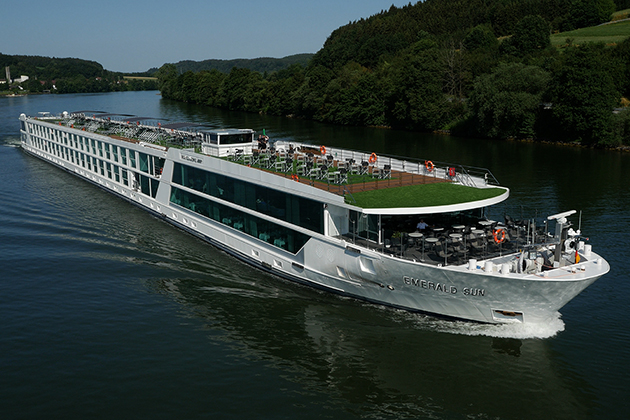
A CDC cruise ship program may help cruise ships avert transmission of the COVID-19 virus. Continue reading to find out about the CDC's color-coding system, vaccination recommendations, as well as the conditional sailing certificate. In addition, discover the risks associated with COVID-19 transmission. And don't worry, the CDC will continue to provide guidance and recommendations for cruise lines. These steps will help cruise vessels improve safety for passengers.
COVID-19, CDC's cruise ship program
The Centers for Disease Control and Prevention has published updated guidance for COVID-19 in water aboard cruise ships. The guidance was based on the latest scientific evidence and will continue to be updated. Cruise ships will be notified when new guidance is released. Travelers should contact their cruise lines for information regarding COVID-19. For more information, please see the following updates. Al Tompkins was the senior faculty member responsible for this article.

The color-coding system used by the CDC to identify COVID-19 cases
After months and months spent removing regulations, the Centers for Disease Control and Prevention ("CDC") has retired its COVID-19 program for cruise ships. Although the program is no longer in operation, the CDC will still provide guidance to cruise lines on how to prevent the spread. The CDC's color-coding system helps cruise lines identify outbreaks by letting passengers know which ship has the highest risk of transmitting the virus.
CDC's recommendations for COVID-19 vaccines
To increase safety for their passengers, cruise lines now have the option to use a tiered vaccination system. The CDC recommends that 95% of passengers and 95% of crew members be fully vaccinated against COVID-19. New guidelines mandate that cruise lines publish their COVID-19 vaccination statuses on their website. This will allow passengers and crew to determine if there are high levels of COVID-19. The CDC recommends that travelers obtain the COVID-19 vaccination before boarding a boat. Additionally, testing should be performed within one-day of embarkation.
CDC's conditional sailing certificate
The certification of a cruise boat must include information that assists CDC in assessing safety of crew and passengers. It should include details about safety and health protocols, as well as their resolution. The COVID-19 Conditional Shipping Certificate application must include any records that cruise ship operators may have, such as passenger test results and volunteer crew records. Additionally, each incident must be reported to the CDC, along with a detailed plan.

CDC's guidance regarding commercial repatriation of U.S. citizens with COVID-19
HHS has issued updated guidelines for commercial repatriation of U.S.-based persons with COVID-19. HHS will continue to engage with stakeholders and the Return to Workplace Task Force. Employers are also encouraged to develop and implement phased return-to-work plans. The guidelines should also be communicated to employees.
FAQ
These four factors affect the cost of a cruise.
The main factors that will determine the price of your cruise are how much time you want to spend aboard, whether or not you prefer an all inclusive package, how many guests you plan on bringing along, and what cabin type you have booked.
Why shouldn't I book my cruise in advance?
Sometimes it is not necessary to book a cruise early. Sometimes, it is cheaper to wait until last minute. It is best to book your cruise well in advance, even if it seems like a good idea. This allows you to take advantage of special deals and promotions offered by cruise lines.
How much does a cruise vacation run?
Cruise vacations cost $1,000 per person plus tax and fees. The average cost for a family vacation is $4,200. This includes meals, beverages, entertainment, activities and gratuities as well as all meals.
What is a cruise ship vacation like?
An all-inclusive vacation on a cruise ship is the best description. You are taken care of at all times. You have access to everything, from entertainment, restaurants, spas, activities, and excursions. You can enjoy your stay and also relax. You only need to bring your sense of adventure.
Do you need a passport to go on a cruise?
If you want to travel the world, you should have a passport. You can travel to any country with a passport without needing a visa or other paperwork.
You might not be allowed into certain countries if you don't have a passport. You can also stay longer abroad with a passport.
Statistics
- In addition, 10 to 15 percent gratuity is typically added to bar bills — for alcohol and soft drinks — and gratuities are applied to spa treatments. (cruiseline.com)
- You'll need to budget around $80 per person per day for this option – and an additional 18% gratuity. (travel.usnews.com)
- For an example of savings, Royal Caribbean offers up to a 40% discount with a dining package. (travel.usnews.com)
- The line estimates savings of 50% when you purchase this bundle. (travel.usnews.com)
External Links
How To
How to stay safe while aboard a cruise vessel
You need to know a lot before you set sail on your cruise. Behave properly onboard to avoid any problems. Here are some safety tips to help you enjoy your trip.
-
Be aware of your surroundings at all times. People often gather onboard cruise ships to share meals. Because you are surrounded with people who want to talk and eat, it is easy to get distracted from your tasks. This shouldn't distract you from the work you are supposed to do. If you notice someone engaging in dangerous behavior, such as smoking, or drinking alcohol, politely tell them to stop.
-
You should always keep your roomkey close by you when you board the vessel. This way, they'll know where to find you if anything happens to you. You should also have your passport on you.
-
Your valuables should be kept out of reach. Most cabins include drawers under the beds. That's a great place to store valuables such as passports, credit cards, and money. Keep your valuables out of sight. Your bags should be kept in the closet, so that no one can see them.
-
Stay hydrated. Although cruise ships offer plenty of water, it can be difficult to remember to drink enough. Use the free bottled water that is available onboard. Avoid becoming dehydrated. Dehydration can make you tired and cranky, which can lead to fights or other accidents.
-
Attention to announcements. Announcements appear everywhere, including on TV screens or public address systems. These announcements include safety procedures, emergency exits and weather reports. These announcements should be heeded. They could save your life.
-
You should lock your door before you leave your cabin. Never leave your cabin unlocked, no matter how friendly a crew member seems. Unlocked doors are often used by thieves to gain entry. You should ask the crew for permission before you use the restroom.
-
Avoid going overboard alone. The crew will need to wait for you to be rescued if you do fall overboard. In the meantime, sharks and other sea creatures may be attracted to your body. Waiting until help arrives is the best option.
-
Smoking is not permitted in elevators. These elevators are pressurized and smoke can build up quickly. If you feel dizzy or lightheaded, get off immediately. It doesn't necessarily mean that breathing is safe, even though the outside air is clean.
-
Be familiar with the evacuation procedures. Each year thousands of people are killed by being stuck in elevators. Follow the instructions on screen if you are in an emergency.
-
Be familiar with the fire drill. Fire drills occur regularly, typically once per day. During a drill, everyone on deck has to evacuate. Follow the instructions of the crew members. Once the drill is complete, go back to your cabin and lock the door.
-
Ask questions before you accept food or drink. Cruisers are often concerned about food poisoning. Many people are unaware that certain foods cannot be eaten aboard ships. For example, raw oysters are forbidden aboard most cruise ships. If you're unsure whether or not the food you've been offered is safe, politely refuse and look for another meal instead.
-
Take care when you use the pool. There have been numerous instances of people accidentally falling into the pools. Do not be alarmed if you fall in the pool. You can also slip and fall off the deck at any moment. You should always wear good footwear and be aware of your surroundings.